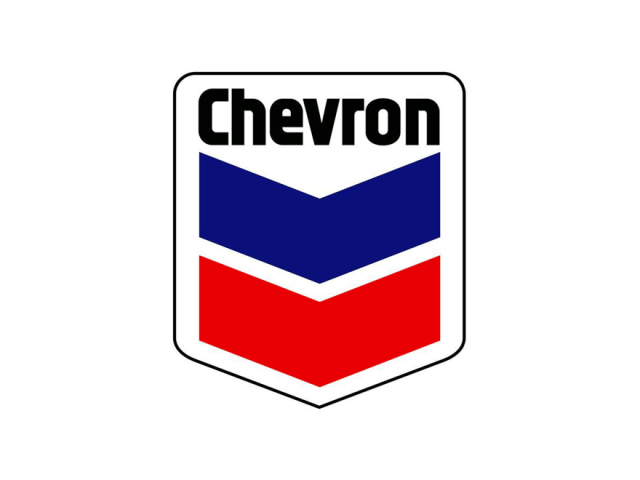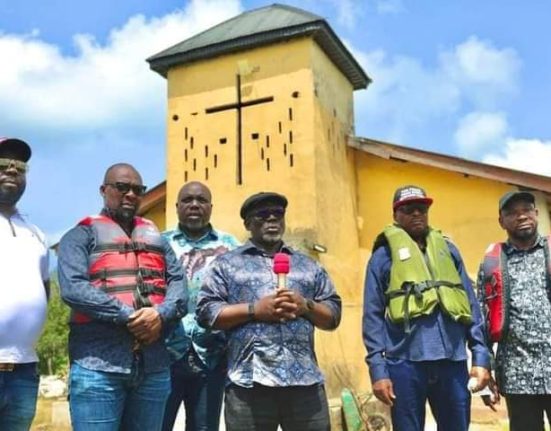GbaramatuVoice demands end to gas flaring, calls for participatory development of Niger Delta region
By GbaramatuVoice Editorial Board
When it comes to commentaries on the Nigeria’s Petroleum sector and Niger Delta region, GbaramatuVoice has many detractors and attackers made up of Nigerians with vested interest and comfortable with the old fashion, and opaque ways of doing business in the nation’s petroleum sector and Niger Delta as illustrated in previous editorial comments.
Aside from this group, there are also those-a small minority of corrupt politicians who “genuinely” did not like GbaramatuVoice for what it represents-promotion of good governance.
But the native wisdom professes; “the protestation of the innocent chick does not prevent or stall the sacrifice, rather it enriches the sacrifice and hastens its value and efficacy”. Likewise, the flood of opposition did not stop GbaramatuVoice as a media organization from performing its constitutional responsibility. Rather, it has only increased its resolve to bringing injustices in the region to surface where it can be seen and treated.
From this standpoint, GbaramatuVoice writes that gas flaring in the region is one major challenge that the Federal Government must pay sincere attention to. The reason is obvious. Up till now, the people of the region cannot properly breathe as it is littered by gas flaring points.
Niger Deltans have before now felt that the coming of the Petroleum Industry Act (PIA) 2021, will solve the real and imagined challenges in the nation’s petroleum sector, and turn the Niger Delta region, particularly host communities, to a zone of peace in their relationship with crude oil prospecting and exploration companies.
ALSO READ: Gas Flaring: How Nigerian Authorities Deceive With Prohibition Bills, Deadlines
However, instead of providing the legal, governance, regulatory and fiscal framework for the petroleum industry and the host communities, GbaramatuVoice with dissatisfaction that the PIA has, contrary to expectation, become a first line of conflict between crude oil prospecting, exploration companies and their host communities. Like other Acts that guided crude oil production in the past, PIA has similarly become a toothless bulldog that neither bites nor barks. In fact, analysts and industry watchers have come to a sudden realisation that nothing has changed.
GbaramatuVoice tour by boat to creeks and coastal communities of Delta and Bayelsa states will reveal that the much-anticipated end in sight of gas flaring is actually not in sight. In the same manner, a journey by road from Warri via Eku-Abraka to Agbor, and another road trip from Warri through Ughelli down to Ogwuashi-Ukwu in Anoicha Local Government of the state shows an environment where people cannot properly breathe as it is littered by gas flaring points.
To a large extent, the above confirms as true the recently published report which among other concerns noted that Nigeria has about 139 gas flare locations spread across the Niger Delta both in onshore and offshore oil fields where gas, which constitutes about 11 per cent of the total gas produced, is flared.
Also calls for concern is the fresh alarm via a report by Civil Society Organizations (CSOs) in the region that gas flaring is poisoning over 40 million inhabitants of the Niger Delta region, noting that there is no hope for a better life for the people except the Federal Government takes drastic action to address the matter.
Separate from the report’s regret that the Petroleum Industry Act, PIA, has no provision towards tackling gas flaring, as it regards gas flaring as an economic loss for the government, the report wondered why penalties and fines imposed on oil companies for gas flaring are not paid to impacted communities who suffer the danger of gas flares.
While calling for immediate amendment of the PIA in order to inject fresh regulations that will protect the livelihoods and lives of the Niger Delta people, the CSOs in that report insisted that gas flaring has been outlawed in the country, but the government keeps shifting goal post at every deadline set for ending gas flaring in the country.
Apart from the health implication of flared gases on humanity, its adverse impact on the nation’s economy is equally weighty.
For instance, a parallel report published a while ago underlined that about 888 million standard cubic feet of gas was flared daily in 2017. The flared gas, it added, was sufficient to light up Africa, or sub-Saharan Africa, generate 2.5 gigawatts (Gw) of power or produce 50 million barrels of oil equivalent (boe) or produce 600,000 metric tonnes of liquefied petroleum gas (LPG) per year, produce 22 million tonnes of carbon dioxide (CO2), feed two-three liquefied natural gas (LNG) trains, generate 300,000 jobs, able to attract $3.5 billion investment into Nigeria and has $350 million carbon credit value’. This is an illustrative pointer as to why the nation economically gropes and stumbles.
Looking at the enormity of the health and economic losses inherent in gas flaring, GbaramatuVoice may be tempted to ask what set the stage for gas flaring in Nigeria. The politics that keeps it going and why it flourishes unabated?
Banking on what experts are saying, the major reason for flaring of gases is that when crude oil is extracted from onshore and offshore oil wells, it brings with it raw natural gas to the surface and where natural gas transportation, pipelines, and infrastructure are lacking, like in the case of Nigeria, this gas is instead burned off or flared as a waste product as this is the cheapest option. This has been going on since the 1950s when crude oil was first discovered in commercial quantities in Nigeria.
While Nigeria and Nigerians persist to encounter gas flaring in the country, even so has successive administrations in the country made both feeble and deformed attempts to get it arrested.
In 2016, President Muhammadu Buhari led administration enacted Gas Flare Prohibition and Punishment, an act that among other things made provisions to prohibit gas flaring in any oil and gas production operation, blocks, fields, onshore or offshore, and gas facility treatment plants in Nigeria.
On Monday 2nd September, 2018, Dr. Ibe Kachikwu, former Minister of State for Petroleum while speaking at the Buyers’ Forum/Stakeholders’ Engagement organized by the Gas Aggregation Company of Nigeria in Abuja among other things remarked thus; “I have said to the Department of Petroleum Resources, beginning from next year (2019 emphasis added), we are going to get quite frantic about this (ending gas flaring in Nigeria) and companies that cannot meet with extended periods –the issue is not how much you can pay in terms of fines for gas flaring, the issue is that you would not produce. We need to begin to look at the foreclosing of licenses’. That threat has since ended in the frames as there has been little or nothing to get the threat actualized.
The administration also launched the now abandoned National Gas Flare Commercialization Programme (NGFCP), a programme, according to the Federal Government aimed at achieving the flares-out agenda/zero routine gas flaring in Nigeria by 2020. Again, like a regular trademark, it failed.
Away from Buhari’s administration, in 1979, the then Federal Government in similar style came up with the Associated Gas Re-injection Act which summarily prohibited gas flaring and also fixed the flare-out deadline for January 1, 1984. It failed in line with leadership philosophy in the country.
GbaramatuVoice also observes that similar feeble and deformed attempts were made in 2003, 2006, and 2008.
In the same style and span, precisely on July 2, 2009, the Nigerian Senate passed a Gas Flaring (Prohibition and Punishment) Bill 2009 (SB 126) into Law fixing the flare-out deadline for December 31, 2010-a date that slowly but inevitably failed.
Not stopping at this point, the FG made another attempt in this direction by coming up with the Petroleum Industry Bill which fixed the flare-out deadline for 2012. The same Petroleum Industry Bill (PIB) got protracted till 2021 when it completed its gestation and was subsequently signed into law by President Buhari, as Petroleum Industry Act (PIA).
Despite this vicious movement to save the industry, the environment and its people, the Niger Delta challenge remains. So the question is: If this legion of laws/Acts cannot save the people of the region, who will? When will the Petroleum Act complete its gestation period and deliver the targeted result to the people of the Niger Delta region?
To permanently resolve the Niger Delta question, GbaramatuVoice holds the opinion that the people of the region must be directly involved in the management of their resources.
For publication of your news content, articles, live event coverage, political campaigns, festivals, photos, videos or any other news worthy materials on GbaramatuVoice and to place advert, please call or WhatsApp +2348143459986 or Email: gbaramatuvoice@gmail.com
Support Quality Journalism in the Niger Delta Region
Join us in our mission to bring development journalism, cultural preservation, and environmental awareness to the forefront. Your contribution makes a difference in the lives of the people of the Niger Delta. Donate today and be a part of the change!








